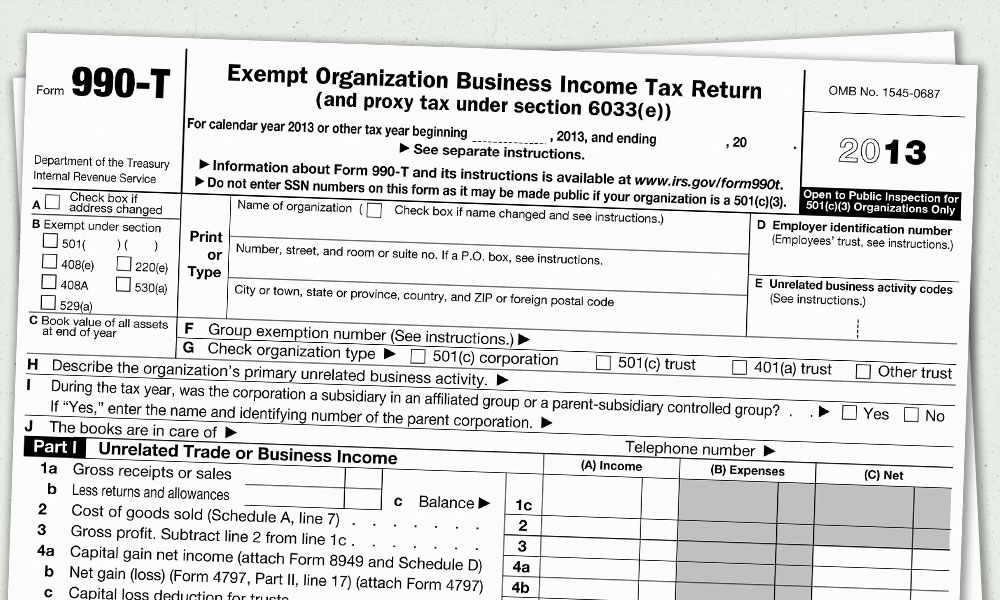
More UBIT Guidance Needed, IRS Advisory Panel Says
To help tax-exempt organizations in their reporting of unrelated business income, the advisory panel made several recommendations, including reworking the Form 990-T and delineating what activities would classify as related or unrelated.
Many tax-exempt organizations do not fully understand the rules for determining whether income is UBTI requiring the filing of a Form 990-T and the payment of UBIT.
The IRS should work with their chief counsel and the U.S. Treasury Department to publish comprehensive guidance on a range of issues related to tax-exempt organizations’ reporting of unrelated business income, according to a new report from an IRS advisory panel.
The recommendation was one of several made by the Advisory Committee on Tax Exempt and Government Entities (ACT) in its annual report to the IRS.
The panel also recommended that the IRS expeditiously rework the Form 990-T that organizations use to report unrelated business income tax (UBIT) and adopt regulations clarifying that profits from a commercial activity won’t endanger a group’s tax exemption as long as the group’s income and financial resources are used commensurate in scope with its charitable purpose. ACT recommended that the Form 990-T have as its centerpiece a checklist for activity-by-activity reporting.
“After 63 years, the time has come to redesign Form 990-T,” the report noted. “We envision a new form that would heighten education and outreach, simplify the Form 990-T process for the tax-exempt sector, provide better statistical data, and if possible minimize the size of the form.”
The report frequently cited the IRS’s recent compliance check on colleges and universities that revealed underreporting of UBIT. In 2008, the IRS sent questionnaires to 400 colleges and universities asking for information about sources of unrelated business income and executive compensation. A subsequent report on the IRS’s findings revealed that roughly 90 percent of the examined institutions needed to make adjustments to their 990-T reporting, resulting in an increase of roughly $90 million in UBIT. The IRS has said it doesn’t think organizations are intentionally disregarding the rules, but rather the current test for determining UBIT is open to too much interpretation.
“Many tax-exempt organizations do not fully understand the rules for determining whether income is UBTI requiring the filing of a Form 990-T and the payment of UBIT,” the ACT report noted. “As a result, many organizations likely underreport their UBTI and underpay their UBIT.”
The report recommended that the IRS develop a comprehensive revenue ruling that provides categories of activities that will be considered related and unrelated, guidance on preparatory time spent on activities, and scenarios of situations involving activities that were frequently reported on the colleges and universities questionnaire, such as facility rentals and dual-use properties.
While the report focused on 501(c)(3) organizations—specifically colleges and universities—the IRS Exempt Organizations office has acknowledged that guidance in the area of UBIT is needed for the entire tax-exempt sector.
(Associations Now illustration)






Comments